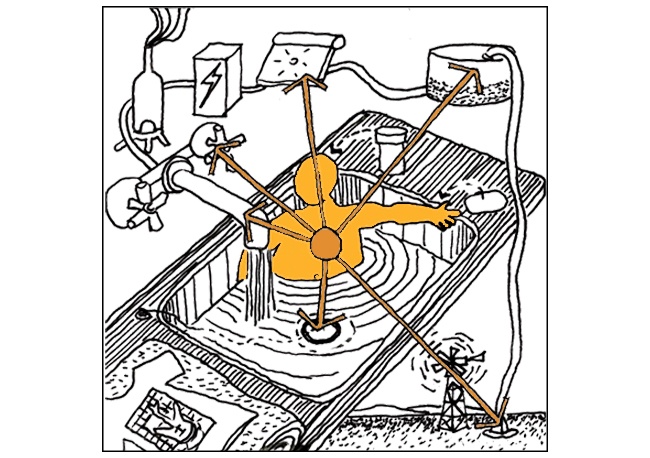Primordial Prevention of ARF in NSW
NSW RHD Program
The NSW RHD Program was established in 2015. It is funded by NSW Health, and centers around a disease register to support clinicians managing people with diagnosed acute rheumatic fever (ARF) and rheumatic heart disease (RHD). The program also conducts education, awareness raising and disease prevention activities, including those aimed at improving housing and environmental conditions.
The NSW ARF/RHD Register was established in 2016. The register supports patients, their families, and their healthcare providers to manage the long-term preventive treatment and clinical reviews required to prevent further ARF episodes. Register enrolment is voluntary, and requires the consent of the person with ARF or RHD or their guardian.
Unlike joining the register, notification of ARF in people of all ages, and RHD in people aged less than 35 years, is mandatory in NSW. Public Health Units based in local health districts across NSW support disease management and are responsible for overseeing notification of ARF and RHD. Public health units also have staff that manage other notifiable disease conditions, government-funded immunisation programs and environmental health. Each local health district also has an RHD coordinator to help identify people with ARF and RHD, seek consent for the register, and support ongoing care in line with best practice.
To date, 149 people have been reported to the register in NSW with ARF and/or RHD; approximately half of these are of Aboriginal and/or Torres Strait Islander descent, and about a third have Pacific Islands ancestry. Most of the Aboriginal people with ARF and RHD live in rural and remote parts of NSW. About 50% of people provide consent to join the register.
Housing for Health
 There is a well-established link between living conditions and the group A Streptococcal (Strep A) infections that lead to episodes of ARF. Primordial prevention measures related to ARF are those aiming to prevent Strep A infections. These measures include improving housing and environmental conditions, including addressing household crowding, reducing bed sharing and towel sharing, and providing adequate washing facilities.
There is a well-established link between living conditions and the group A Streptococcal (Strep A) infections that lead to episodes of ARF. Primordial prevention measures related to ARF are those aiming to prevent Strep A infections. These measures include improving housing and environmental conditions, including addressing household crowding, reducing bed sharing and towel sharing, and providing adequate washing facilities.
Since 1997, NSW Health has run a Housing for Health program aimed at improving safety and health hardware in houses in Aboriginal communities. The Housing for Health methodology was first developed by Healthabitat in Central Australia in the late 1980s, and since has been used around Australia and overseas to improve health through the living environment. In NSW, Housing for Health projects are primarily run in the Aboriginal community housing sector. Objectives are based on a set of standardised, repeatable tests to:
- assess the safety and function of housing
- focus on repairs that will maximise health gains, particularly for children aged up to five years old
- use evidence-based safety and health priorities.
A ten-year evaluation showed the program to be highly effective; hospitalisations for infectious diseases were reduced by 40 per cent in participating communities.
Between 1997 and 2019, NSW Health delivered 133 Housing for Health projects. During this period, 4,346 houses were surveyed, 112,169 items directly related to improving health and safety were fixed, and more than 18,250 people benefited.
Pilot Environmental Health Response
More recently, the NSW RHD Program has commenced a pilot Environmental Health Response Home Assessment and Fix project based on the Housing for Health model. This initiative aims to ensure the house functions to support healthy living practices and reduce the transmission of Strep A infections between household members.
The pilot project prioritises fix works that relate to the ability to wash people (especially children); to wash and dry clothes/bedding; to remove waste and to prepare and cook food. Repairable items include showers, baths, toilets, basins, taps, spouts, hot water systems, stoves, bathroom ventilation, laundry tubs and clotheslines.
The initial steps of the project involve consultation between the public health unit, local health district coordinator, the health care provider and the person with ARF/RHD or their guardian. Education on how to minimise the risk of Strep A infection and recurrent ARF is also provided during the initial consultations. Other support services and resources are sourced or provided on a case-by-case basis.
The pilot proposed to include 10 houses and is currently underway. NSW looks forward to providing an update when it is complete.
For more information, contact the NSW RHD Program.
P: 1300 066 055 (within NSW)
P: (02) 9391 9195 (outside NSW)
E: nswh-rhd@health.nsw.gov.au
